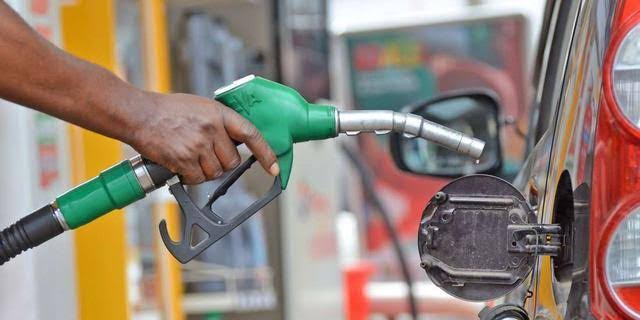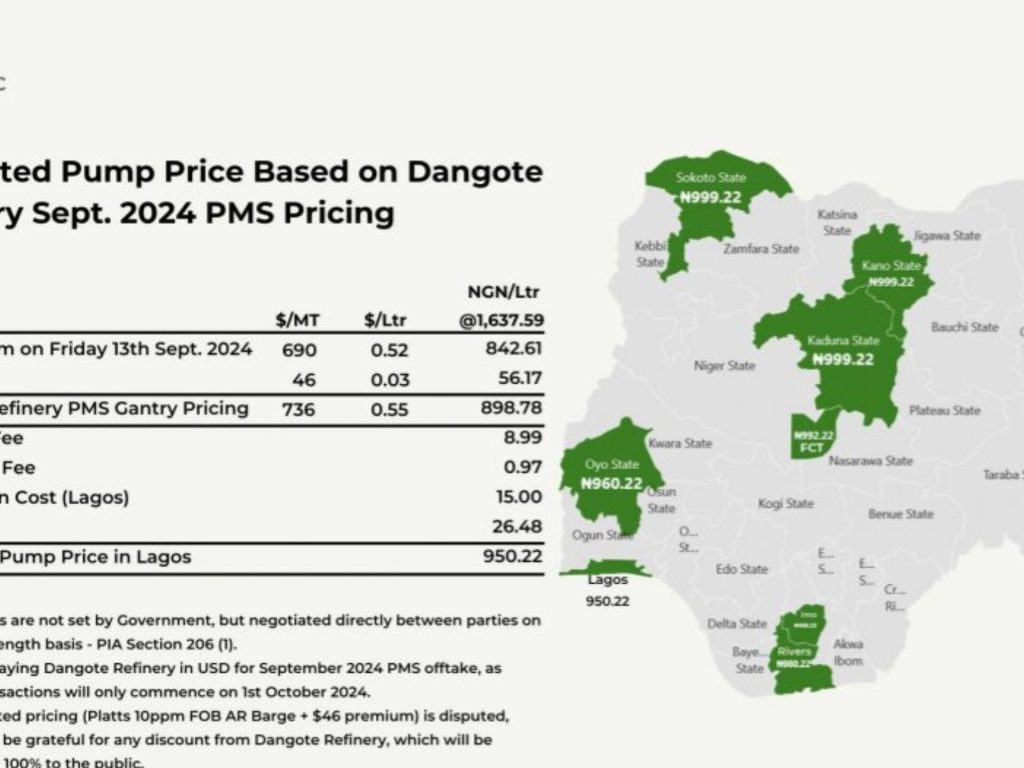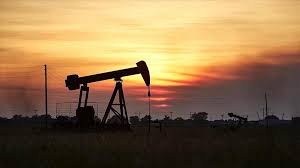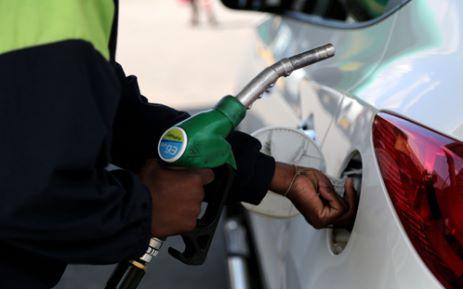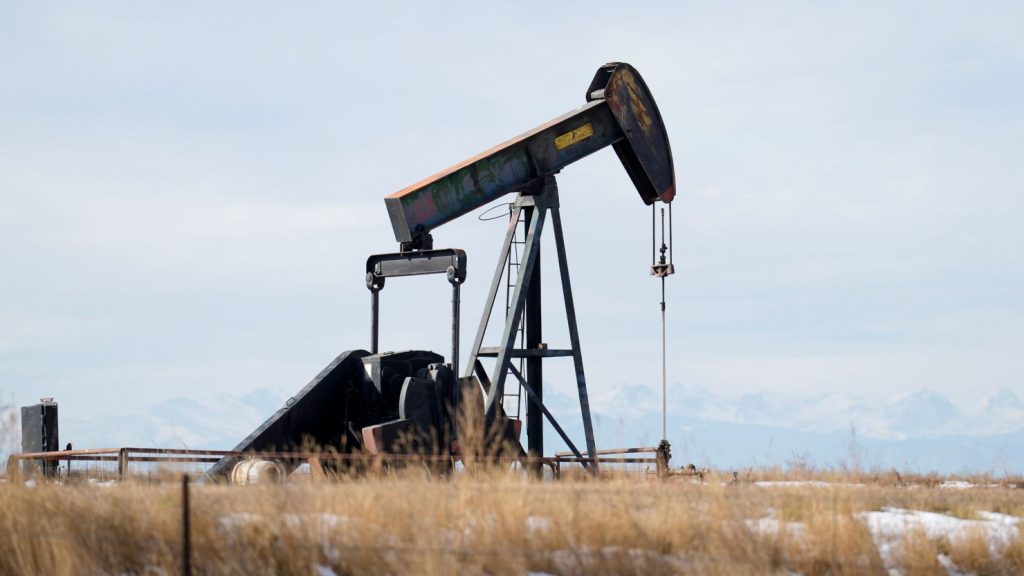Petrol Hike in Lagos and Abuja: Details
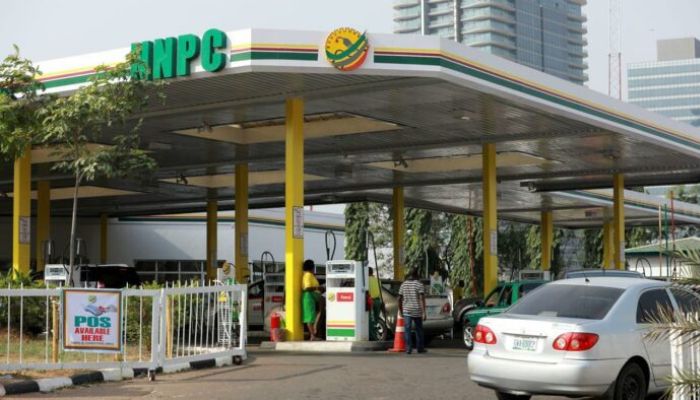
Fuel prices in Nigeria hit a new high on Tuesday as the Nigerian National Petroleum Company Limited hiked the pump prices of Premium Motor Spirit, commonly known as petrol, leaving Nigerians outraged and experts predicting further price increases in the near future.
The national oil firm raised the retail price of petrol in Abuja to N1,060 from N1,030 per litre, while in Lagos, stations under its purview increased the unit price to N1,025 from N998 per litre, inciting widespread criticism from the Organised Private Sector, Civil Society Organisations, and Nigerians at large.
The hike in petrol prices comes at a time when Nigerians are already grappling with high inflation, which rose to a 28-year high of 34.2 per cent in June, threatening to further exacerbate the country’s economic woes.
Fuel plays a significant role in Nigeria’s economy, serving as a key factor in the prices of basic goods and services. Thus, any increase in its price can have a domino effect on other aspects of daily life, including transportation, food, and energy costs.
With inflation already straining the budgets of households across Nigeria, the latest increase in petrol prices is likely to hit low-income earners and small businesses the hardest.
Many experts worry that the hike may exacerbate inflationary pressures, leading to further price increases across the board and making essential goods and services more expensive for the average Nigerian.
Moreover, the impact of higher petrol prices on the transport sector could be especially significant, as many Nigerians rely on public transport, which could see fares rise in response to the new prices.
The ripple effects of rising petrol prices in Nigeria may also be felt beyond the country’s borders, as the nation remains a major player in the West African regional economy.
With its large population and strategic location, Nigeria serves as a vital hub for trade and commerce in the region, and any instability in its economic landscape could have spillover effects on neighbouring countries that rely on it for goods, services, and investment opportunities.
This, in turn, highlights the importance of finding long-term solutions to Nigeria’s fuel subsidy crisis, which has been a persistent source of political and economic volatility for years.
The petrol subsidy crisis has been a complex issue in Nigeria for years, and it continues to be a major source of debate among policymakers and economic experts.
At the heart of the crisis is the Nigerian government’s longstanding practice of subsidizing the cost of petrol for consumers by paying the difference between the market price of crude oil and the lower retail price at the pump.
While this policy has made fuel more affordable for Nigerians, it has also put a significant strain on government finances, leading to calls for reforms and a shift towards a more sustainable pricing model.
The petrol subsidy crisis is not only a significant drain on Nigeria’s fiscal resources, but it also creates opportunities for corruption and waste.
The opaque nature of the subsidy payments has made it difficult to track where the funds are going, and there have been numerous allegations of fraud and mismanagement of the subsidy funds.
Moreover, the subsidy system has also created an incentive for smuggling of subsidized fuel into neighbouring countries, where it can be sold at higher prices, further undermining the policy’s intended benefits for Nigerian consumers.
In an effort to address the long-standing petrol subsidy issue, the Nigerian government has attempted to phase out the subsidies over the years, but these efforts have been met with strong resistance from the populace.
Previous attempts to remove the subsidies have triggered mass protests and strikes, leading to significant disruptions in the country’s economic activities and social stability.
Given the political sensitivity of the issue and the potential backlash that any proposed reforms could generate, the government faces a delicate balancing act in trying to address the subsidy crisis without further exacerbating tensions and triggering widespread unrest.
Referenece and Citations:
- Businessday – petrol price hits N1025 at NNPC outlet in Lagos, N1060 in Abuja
- Nairametrics – NNPC raises petrol price again N1025 in Lagos, N1050 in Abuja
- PUNCH – Again, NNPC hike petrol price fixes N1060/ Litre


